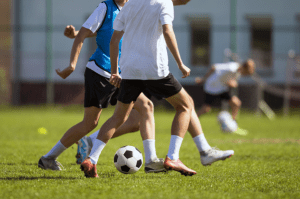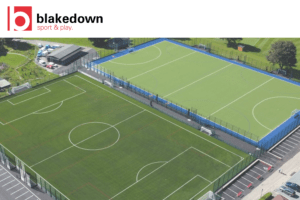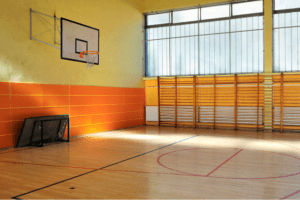Sport plays a significant role in social inclusion by providing opportunities for people of different genders and abilities to showcase their talent on an equivalent platform. However, many communities often face discrimination in sports based on gender, culture or inclusion.
Women’s sport is still playing catch up to men’s sports in terms of funding, facilities, sponsorship and viewership. If proper measures are taken, sport can be one of the key platforms providing equal opportunities to empower women and girls. And this endeavour should start at the grassroots level to reshape the future of women’s sports.
Women in sport vs men in sport
Girls and women have long faced barriers in sports participation, starting as early as primary school, resulting in fewer opportunities to have a fully-fledged career in sports.
As per Beatrice Frey, sports partnership manager at UN Women, “At grassroots level it may mean that girls are not able to participate in a sport that is not traditionally considered to be for girls, creating bias at an early age which then follows them through youth and on to elite sport practice.”
In contrast, men have more lucrative opportunities in sports at all levels. Whether we talk about playing sports at primary and secondary school levels or practising at local football clubs, boys can be seen playing more often than girls. What we need in sports is a shift in perception that allows girls and boys to compete at the same level and have equal opportunities to showcase their talent.
Breaking the barriers
Over the years the gender gap has narrowed due to the contribution of women in sports. Events such as the Commonwealth Games and World championships have inspired thousands of girls and women to participate in sports and other physical activities.
In Europe, between 20% and 30% of all sports coaches are women, and despite the gender gap, a total of 83% of sports now reward men and women on an equal basis, according to a survey by BBC. Social media has also played a major role in increasing the global popularity of athletes, regardless of their gender.

Furthermore, in the wake of the Lionesses recent Women’s Euros win, many organisations have come forward with campaigns to contribute towards closing the gender gap in sports such as Adidas’ Pitch, Please, Just Eat 101 and the Football Foundation’s PlayZones Programme.
The role of venue operators
Female participation in sports should be encouraged at the earliest stage possible (at schools and community level) to remove the barriers preventing girls from having equal access to pitches. Working on reducing these constraints through leadership, development, and awareness campaigns is essential for improvement.
Let’s discuss some steps on how can we address these issues to form a better future for women and girls in sports.
Allot pitch timings equally between women’s and men’s teams, especially when new facilities are being built.
Facilities can conduct a site assessment to consider surrounding security, street lighting, traffic links, and more for the safety of women and girl players.
Venues can ask female participants about their experiences with personal safety on the grounds and surrounding areas and what steps venues can take to ensure safe and secure access to playing fields. For instance, the Football Foundation plans to use Lockteq, a smart digital locking solution with flexible control, for secure and contact-free access to their PlayZones sites.
- Make sure that sports equipment and accessories made available to women and girls are in good condition.
- Facilities can consider organising women’s only training sessions (led by female coaches) to create a comfortable environment for practising games.
- Facilities can invite local female athletes as role models to join in and remind participants that sports is not male-dominated and anyone can excel in sports irrespective of gender, physical appearance or socio-cultural background.
Gender equality and inclusion objectives
Sport provides a platform to renegotiate concepts of femininity, showing that women are capable of achieving so much more than they currently are in the sporting landscape. Female involvement in sports promotes gender equality, social change and empowerment.
With access to ample resources, pitches and exposure, female players can achieve as much from sports as men, if not more. Here are 3 reasons why women’s sports should be prioritised:
High Schools Gender Inequality in Sports
According to Football Association, only 63% of schools in England offer equal football coaches to boys and girls. While more girls want to take part in sports at the secondary and high school levels, lack of opportunities, spaces and equipment to play, act as major constraints. By working together we can overcome sport-based gender inequalities at school level.
The Value of Women Playing Sports
Sport can foster a great development framework in young girls since staying physically active improves their concentration and motivation to achieve better things in life and pursue their goals. Girls and women who play sports have higher levels of confidence and self-esteem as well as a higher level of physiological well-being.
Equal Pay for Women in Sports

Unequal funding and pay gaps in sports must be eliminated to foster growth in women’s sports as these hinder the possibilities for them to pursue sports as a professional career. As per BBC sports, 35 out of 44 sports now offer equal prize money to men and women players but there is still a long way to go to reach equality in many high-profile sports such as football.
Who are we?
Bookteq is a certified B Corporation that supports equal opportunities for all when it comes to accessible pitches and sports venues. That’s why our dynamic booking software for facilities allows unbiased, easy booking and 24/7 access for all your players irrespective of gender stereotypes. So that everyone has an equal opportunity to play their favourite sport.
















